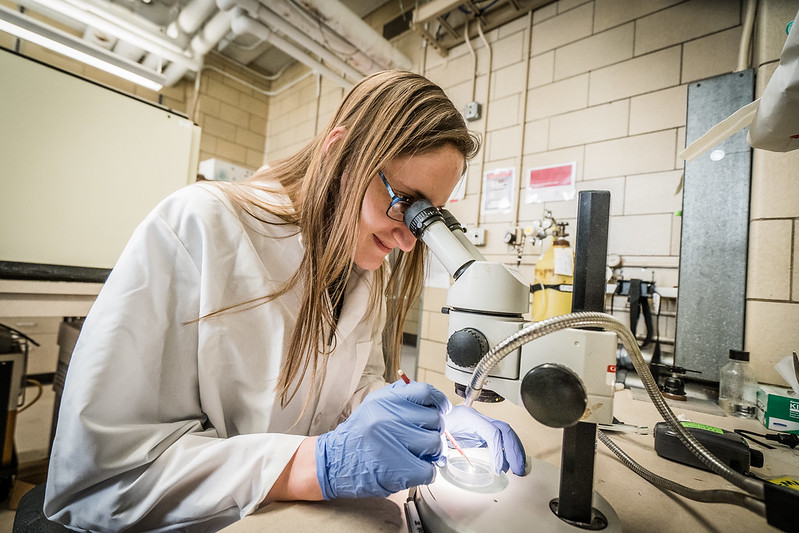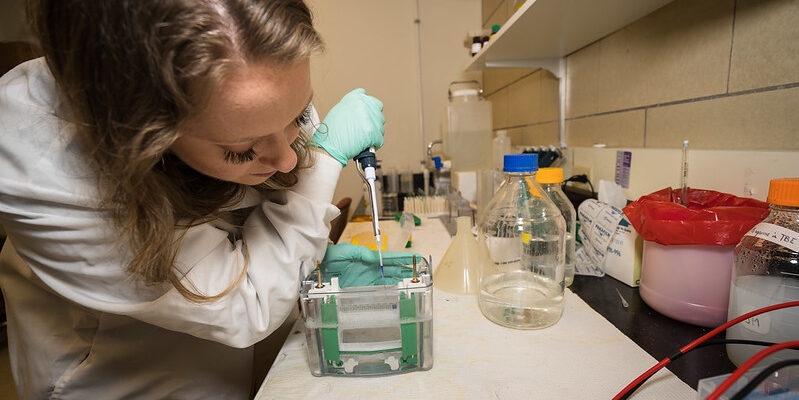We’re used to seeing Pennsylvania’s 19th and 20th-century industrial infrastructure (factories, mills, steel plants) rebuilt and reborn for the present moment. But what about a massive modern hospital that stood empty for a decade?
Bellevue’s Suburban General Hospital, located just outside the city on Pittsburgh’s west side, closed its doors in 2010. Now a partnership between Allegheny Health Network (a major nonprofit healthcare system) and Innovation Works (a major seed-stage investor) has brought the 230,000-square-foot facility back to life as a healthcare powerhouse, with a twist.
The newly christened AlphaLab Health welcomed its first cohort of seven startups last January. It is a comprehensive life-sciences business accelerator that has transformed every part of the former hospital.
“We decided to partner with AHN because we’re seeing tremendous growth in life sciences in Pittsburgh,” says Megan Shaw, managing director of life sciences at Innovation Works and AlphaLab Health.
“It is a growing sector, and it’s one where our region has a lot of opportunity to create jobs and innovations,” adds Mark Anthony Thomas, president of the Pittsburgh Regional Alliance, an early supporter of the initiative. He estimates that “we’ll see 75 years of life-sciences innovation in the next 10 years,” and that’s thanks in part to “decades of preparing every layer of life-science education to get us to this point.”
In southwestern Pennsylvania, that infrastructure includes academic and tech powerhouses like the University of Pittsburgh and Carnegie Mellon, as well as AHN and the University of Pittsburgh Medical Center. Success in the sector comes thanks to a mixture of high-volume research, and business mentors teaming with scientists for commercialization. And, of course, funding.
We have to be in a place where we show them a community, not just a lab space.Mark Anthony Thomas, Pittsburgh Regional Alliance
Building any business is a challenge, but those in the life-sciences sector face additional gauntlets such as rigorous clinical trials, and complicated payment and reimbursement systems. At the AlphaLab Health accelerator, a combination of up to $100,000 in financing from Innovation Works, and the clinical and operational expertise of AHN boosts these entrepreneurs.
The old hospital’s lab space is now biotech research labs; patient rooms have become offices for startup staffers, and the old waiting rooms are now conference space. But the AlphaLab Health program is more than a building.
For early stage life-science companies working, for example, on a concept for a medical device, “one of the hardest things for them is to really test the idea with the actual users or decision-makers,” says Shaw. “It can be very hard to pick up a neurosurgeon off the street” who can put real-world clinical eyes on the plan and offer advice.
But thanks to the AHN partnership, that expertise is baked into the AlphaLab accelerator, which provides entrepreneurs with access to working clinicians (or healthcare administrators, if the concept is an operational one). These experts are part of the interview process for aspiring cohort members, and they have the option to mentor startups that enter the program.

“Running a healthcare company is incredibly complicated,” adds Shaw. “You have to deal with clinical studies, policy and publications, and the entire set of healthcare economics,” including a maze of patients, purchasers, and insurers.
On the Innovation Works side, AlphaLab pairs entrepreneurs with experts in realms like manufacturing and product development for biweekly meetings. Joining an on-site peer group is also important, especially coming out of the isolation of the pandemic.
“We have to be in a place where we show them a community, not just a lab space,” explains Thomas.
AlphaLab completed its first cohort of seven companies earlier this year, and is about to launch another. The first group included Gus Gear — the CEO launched her company after hand-sewing vests to keep her son’s permanent central line safe and realizing other patients could use one too. Another is Emergence Dental, which has developed a new bone-graft method for dental implants. CytoAgents is creating a new therapeutic to treat cytokine release syndrome, suffered by many Covid patients as well as those undergoing certain cancer treatments. Each of these companies is now poised for expansion and new rounds of funding.
“We really believe in this partnership between Innovation Works and Allegheny Health Network,” says Shaw. “What we’re doing here adds tremendous value to these companies.”
ALAINA JOHNS is a Philadelphia-based freelance writer and the Editor-in-Chief of BroadStreetReview.com, Philly’s hub for arts, culture and commentary.



